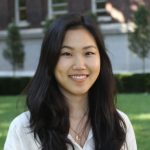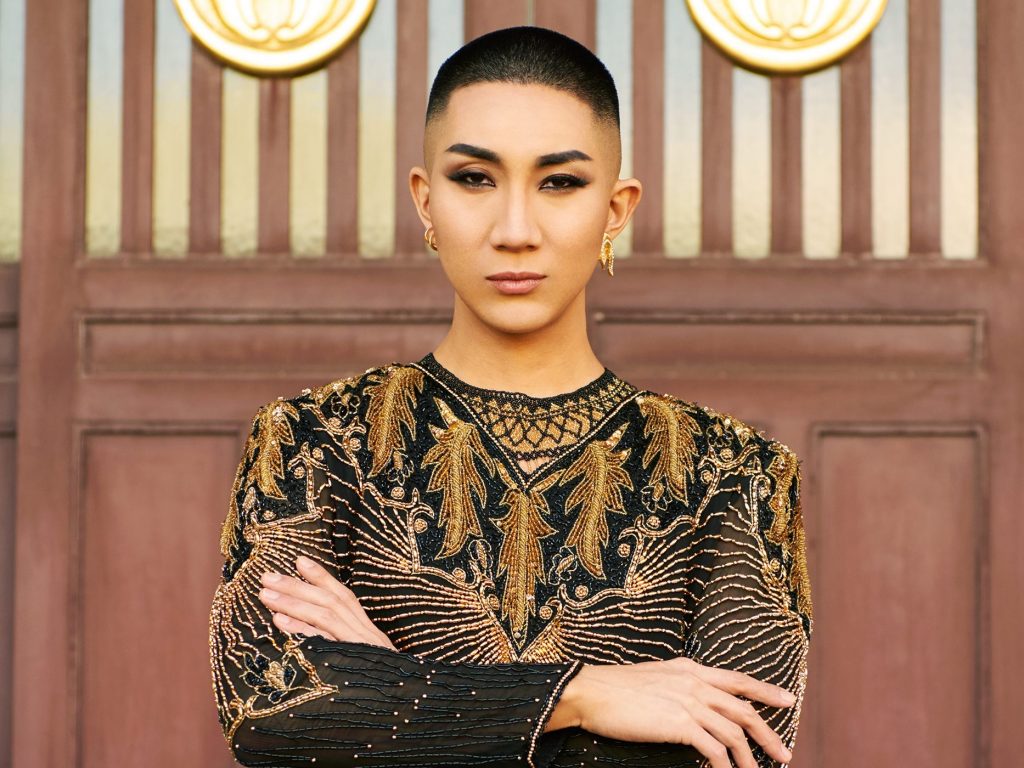- Kodo Nishimura is Buddhist monk, makeup artist, and LGBTQ+ advocate.
- After struggling with society's expectations, he's on a mission to free people from limiting values.
- He spoke to Insider about how the Buddhist path and makeup both helped him on his journey of self discovery.
This is an as-told-to essay based on a conversation with Kodo Nishimura, a Buddhist monk, makeup artist, and LGBTQ+ advocate. He's also the author of the book "This Monk Wears Heels: Be Who You Are." The conversation has been edited for length and clarity.
I was born in a Buddhist temple in Tokyo. When I was young, my friends would ask me questions like, "Do you see ghosts?", which was cute. But I chafed at some other questions:
"So you have to inherit the temple, right?"
"You have to shave that head, right?"
"Have you practiced your chanting?"
These questions and expectations were very limiting — don't expect me to be who you expect me to be. People would say to my father, who's also a Buddhist monk, "You must be so happy to have a boy."
But ever since I was a kid, I've loved everything pretty, fashionable and princess-like. The moment I had consciousness, I was drawn to — and was crazy about — Sailor Moon, Ariel from "The Little Mermaid," Jasmine from "Aladdin." While I invited my guy friends to play Pokemon or wrestle, I also loved princess roleplaying with my female friends, tying my mother's furoshiki — the cloth used to wrap kimonos — around my head to mimic long, flowing hair.
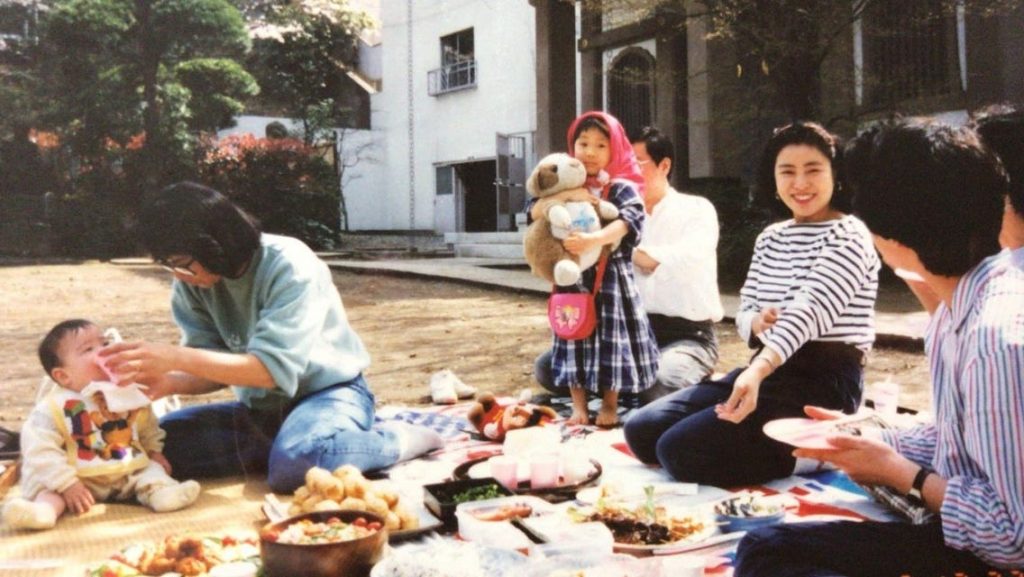
As I was growing up, I increasingly felt like I wasn't "supposed" to do these things anymore because I'm biologically male. Kids around me asked, "Do you have any male friends?" and told me, "You run like a girl."
I felt like it was a shame to love what I loved. There are two gay characters on "Sailor Moon," but they're villains who get defeated by the heroine. LGBTQ representation in anime and Japanese comedy shows was terrible. I was scared that if I came out to my friends, they might see me as creepy, perverted. So I hid my interests and emotions.
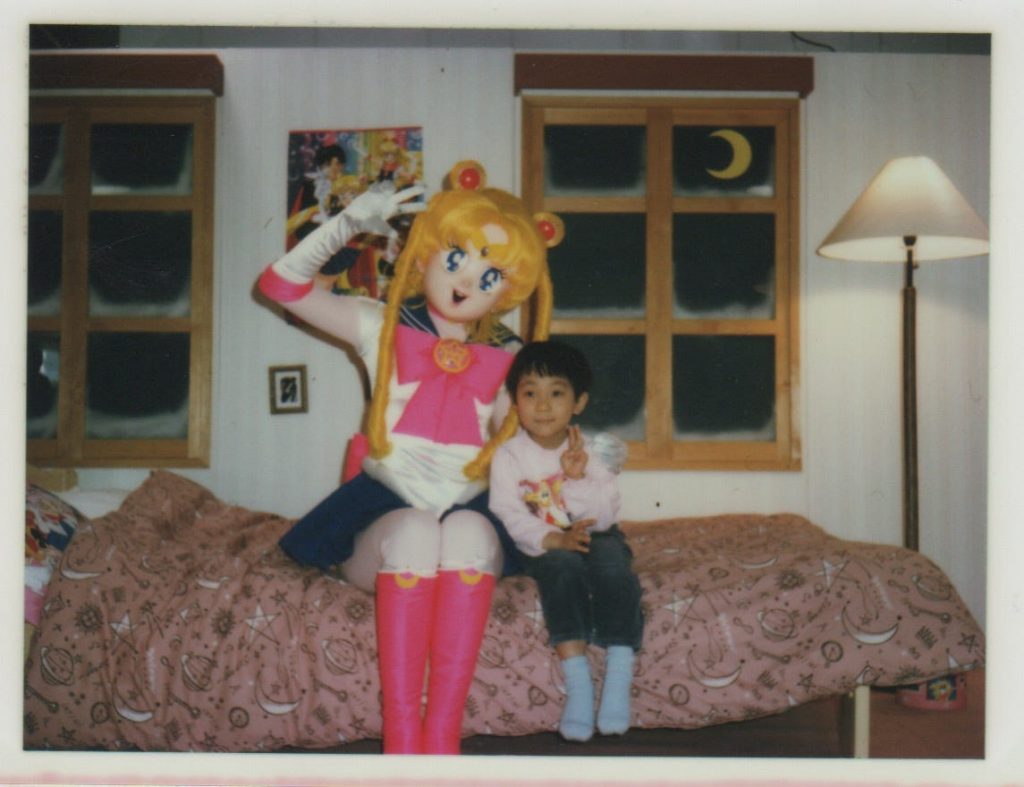
Discovering the power of makeup in America
The movie "The Princess Diaries" inspired me to visit the US. I felt just like Princess Mia, who's ignored and made fun of by other students. I had something smart to say, but people saw me as crazy and didn't pay attention. I saw how Mia grew with the power of hair, makeup, and a Coach backpack — but in the end, even though she doesn't have her makeup or hair done, she was able to deliver her message.
I felt that maybe in the US, I could be honest and share what's on my mind. I spoke good English, and, instead of applying to Japanese universities like most people around me, I applied to Dean College before going to Parsons.
When I arrived in America, I saw men working at Sephora and drag queens with the most incredible makeup. It was a stark contrast to Tokyo, where a clerk lady at a cosmetic counter asked me if I was looking for a gift for my mother or my girlfriend. In America, I started buying my own makeup, and was hooked.
I learned that I don't have to have a supermodel figure and have blue eyes or blond hair to be considered pretty. I don't need makeup to be pretty, but it can be a tool to discover the self.
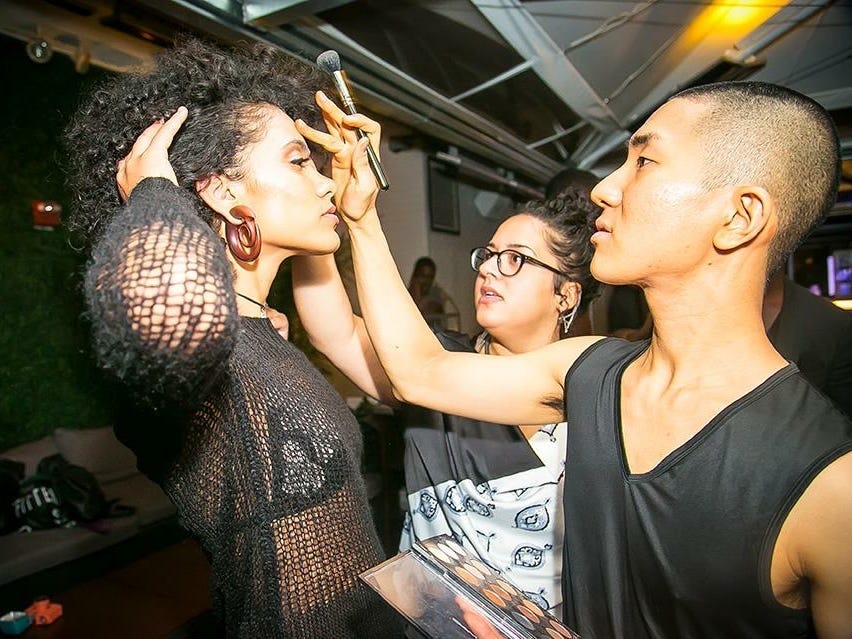
Returning to Buddhism
At Parsons, I wanted to evolve as a person. There were students from all around the world, and I was always trying to make something memorable as an artist. I tried incorporating something original, like origami or Japanese flower arrangements. But something didn't feel right. Those could be incorporated by anyone.
That's when I started thinking more about Buddhism. I'd always avoided the Buddhist path because I was very rebellious. Like, how is it scientifically possible that Buddha is limitless? Where is the "pure land" astronomically?
My mother is a pianist, and she always said, "If you don't like Mozart's music, you have to study his composition first. Then, you can say you don't like Mozart." I realized that was the same with Buddhism — I didn't really know about its teachings. So I decided to train as a monk to see what it says about life, homosexuality, and to see how I could evolve as a person.
Training was hard. I woke up at 5:30 every morning to clean the temple. The water was ice cold, and my hands would get red an itchy. There were hours and hours of classes, exams, prayers, and I would watch the second hand on the clock ticking.
But my friends supported me, teaching me rituals and helping me learn the history. In return, I shaped their eyebrows after showertime.
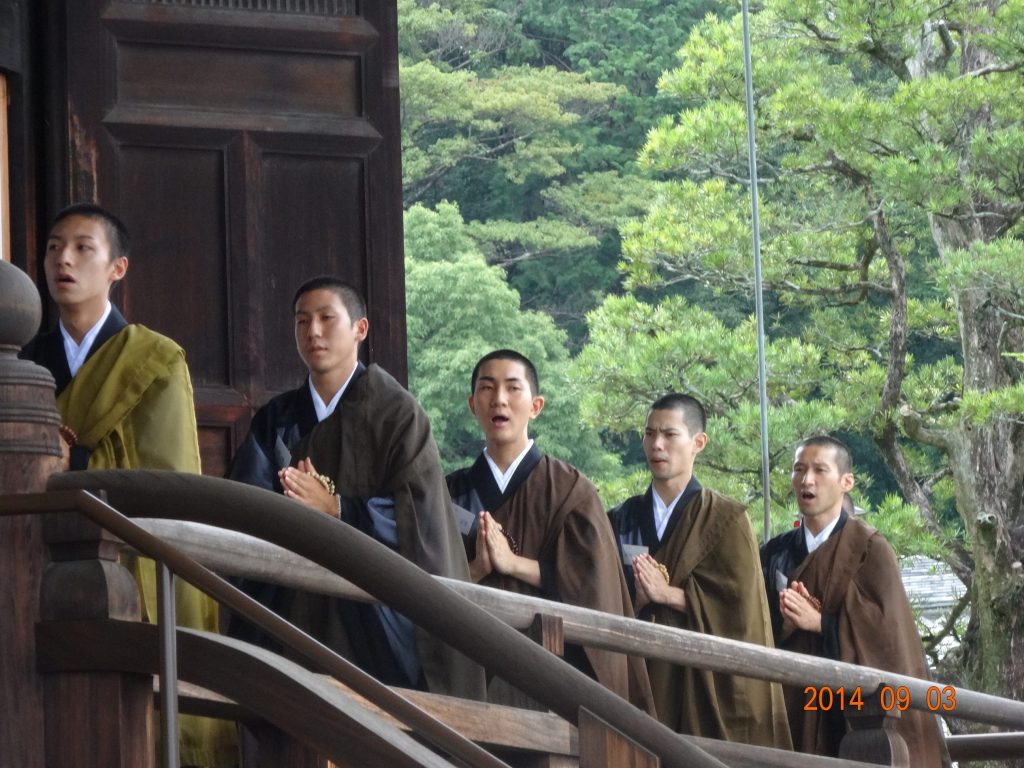
How Buddhism, makeup, and LGBTQ advocacy come together
Since I was young, I saw women, LGBTQ people, people with different religious beliefs being silenced and taken advantage of. I wanted for everyone to feel like they're powerful, and to have equal rights. I wanted to wake people up.
Monks are respected in Japan, so I thought, if I were to be a religious leader and talk about LGBTQ people being equally welcome and accepted, then wouldn't I change something? I wanted to break the bubble that people are limited with, and help them think on their own. Gay people are not perverts or villains — they can even be Buddhist monks.
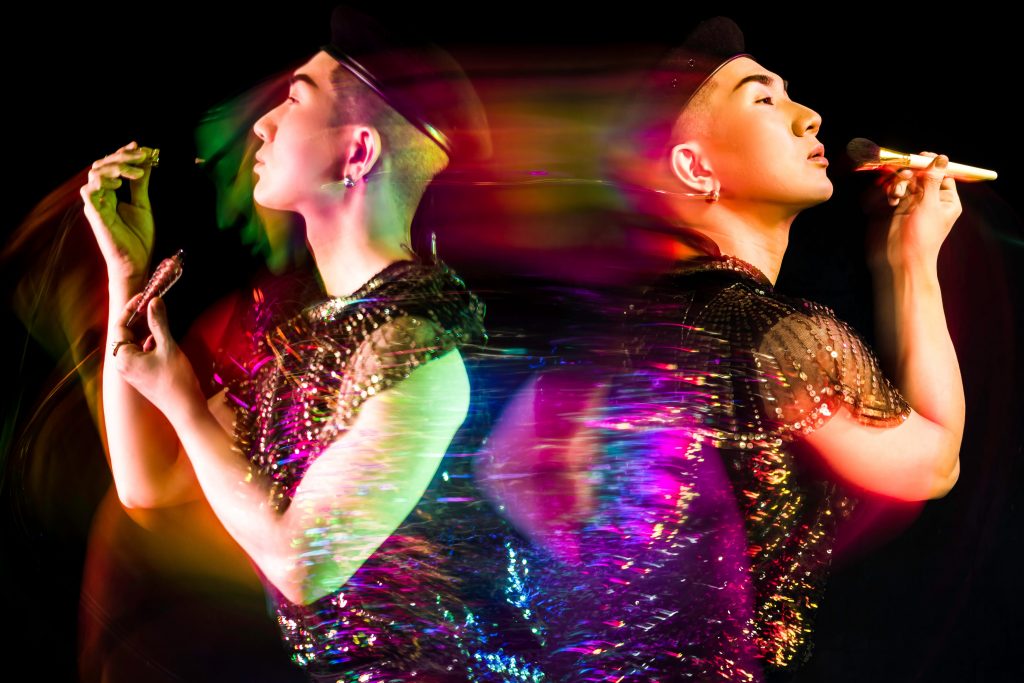
I'm so happy to see things changing, especially in the movies and music industry. You see Lizzo advocating for body acceptance, and the next "The Little Mermaid" movie stars a Black actress. Entertainment and popular culture didn't necessarily showcase religious leaders like me before, and I'd love to give back to people, especially those who feel like they're different. I know I now have my seat at the table.
